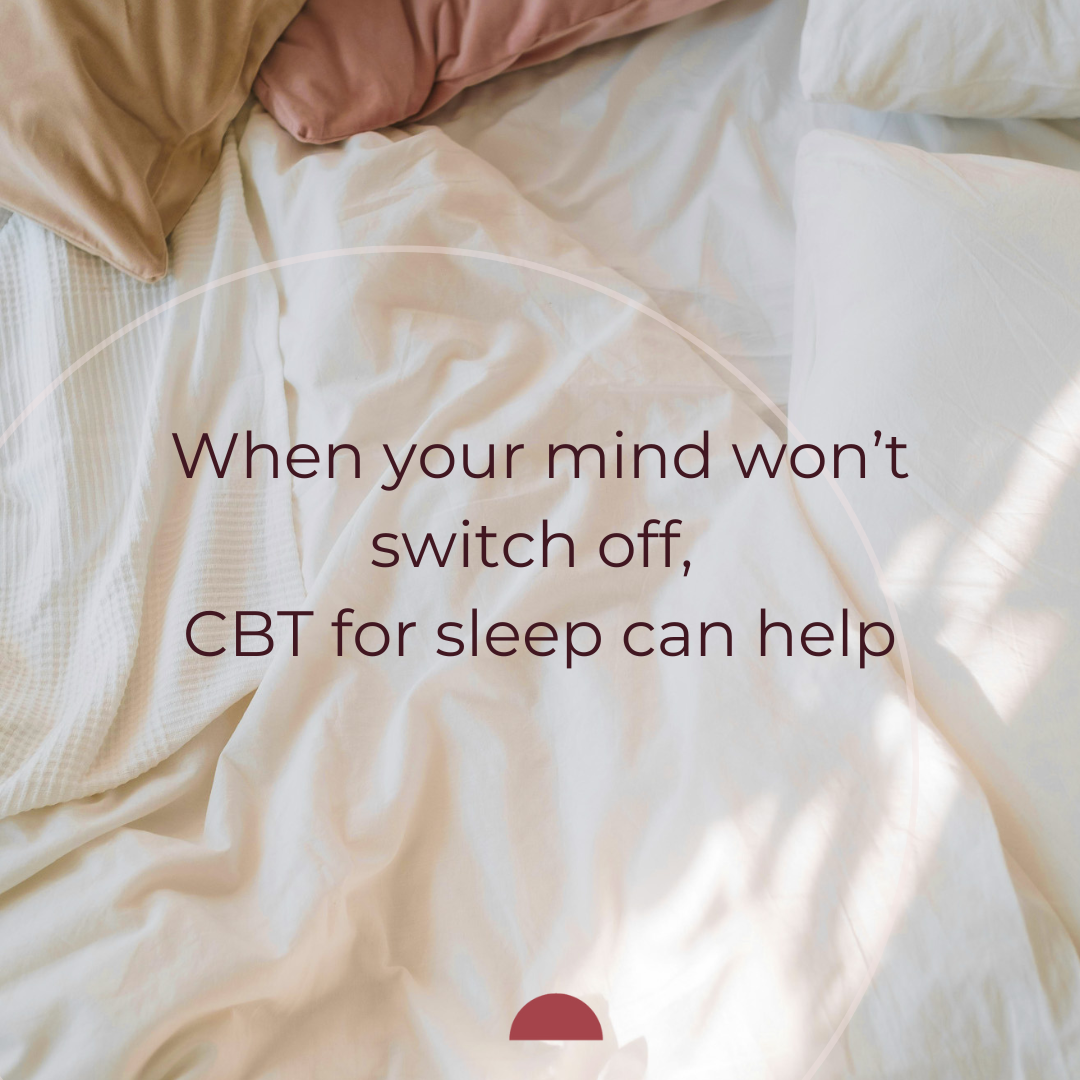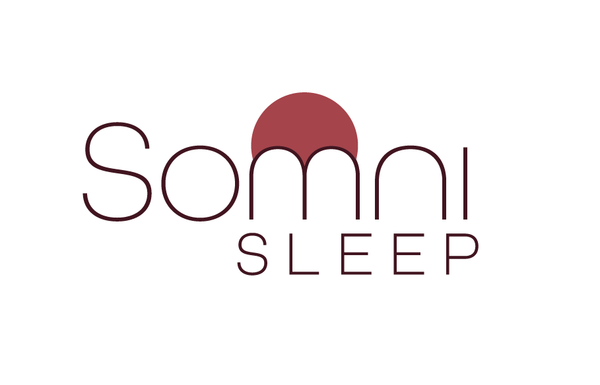
How Cognitive Behavioural Therapy for Sleep can Help Calm a Busy Mind at Bedtime
Share
Have you ever climbed into bed, only to find your mind racing with thoughts about the day, or the day ahead?
This is more common than you might think.
Many people struggle to fall asleep, or stay asleep, not because of physical restlessness, but because of mental overload.
That’s where CBT for sleep – short for Cognitive Behavioural Therapy for sleep – can offer something gentle and grounding.
Before I go on, I want to be clear: I'm not a psychologist, and this is not medical advice. I’m simply sharing what’s helped me, based on personal research and experience, in the hope that it might support you too.
What is CBT?
Cognitive Behavioural Therapy (CBT) is a well-established psychological approach that explores how our thoughts, feelings, and behaviours are connected. It’s often used by mental health professionals to help people recognise unhelpful thought patterns and develop more balanced ways of thinking.
While CBT is typically practised with a qualified therapist, its core ideas – like noticing what you’re thinking, gently questioning it, and shifting into a more helpful perspective – can be explored outside of a clinical setting in small, everyday ways.
How CBT has helped me
CBT has played a big role in helping me manage looping thoughts, especially at night.
Most nights, I actually fall asleep quite easily.
But like many people, I often wake up around 3am with a busy mind and find it hard to drift off again. That’s when the racing thoughts tend to show up – replaying something I said, worrying about what’s ahead, or mentally listing all the things I need to do.
Now, CBT-based reflection is part of my evening wind-down routine, but I also practise it during the day. I’ve found that when I address certain thoughts before bed, they’re much less likely to return in the middle of the night.
This approach has helped me get back to sleep more easily, but it’s also something that can support people who struggle to fall asleep in the first place.
Whether your mind is busy at 10pm or 3am, having a gentle strategy to notice, challenge, and release thoughts can make all the difference.
It’s not about fixing everything.
It’s about creating space – mentally and emotionally – so you can rest.
A thought I used to lose sleep over
Our brains – mine included – have a habit of digging up old memories at night.
Things we said.
Things we wish we’d done differently.
There’s one moment in particular – something I did almost 20 years ago – that used to wake me up often. It wasn’t a huge deal in the grand scheme of life, but for some reason, my mind held onto it. And at 3am, it always felt bigger than it actually was.
For a long time, I’d lie there cringing, wishing I could go back and rewrite that moment.
But over time, I learned to do something softer.
I started to name the thought. “Here comes this old big regret again”.
Then I’d say that line has helped me so much and you’ll hear me refer to it over and over:
“You need to stop being a prisoner to your past. It was a lesson, not a life sentence”.
I come back to this phrase so often. But it reminds me that I can acknowledge what happened in the past, without being imprisoned by it.
What’s done is done.
I don’t have to fix it. I don’t have to solve it. I don’t need to dwell on it. I just notice the thought, name it kindly, and let it pass.
And more often than not, that’s enough to quiet my mind and go back to sleep.
Why I created the cards
Our CBT-inspired sleep cards grew from this experience.
They’re not therapy, and they’re not designed to diagnose or treat anything.
Instead, they offer small, supportive prompts that help you:
- Notice what you're thinking
- Reflect on whether it’s helpful or just habitual
- Reframe it with more calm and clarity
They’re designed for those quiet moments when your mind just won’t switch off,
and you need a gentle way to come back to the present.
No pressure. No fixing. Just rest, one thought at a time.
Why CBT works so well for sleep
So CBT has been shown to be one of the most effective tools for improving sleep - and it’s not about “thinking positive” or trying to force yourself to relax.
Instead, it helps you notice the thoughts that keep you wired at night, check in with whether they’re helpful, and gently reframe them in a way that feels more calming and true.
And that’s powerful when it’s 3am and your mind won’t switch off.
CBT also helps calm the nervous system by giving your brain something useful and compassionate to focus on, instead of replaying conversations or running through to-do lists.
Over time, it builds your ability to pause, reflect, and release what doesn’t serve you, so your body and mind can return to rest.
Why this matters for sleep
Many sleep experts agree that mental stimulation, particularly worry or rumination, is one of the biggest barriers to falling, or staying asleep.
Even when your body is still, your mind may not be.
Research shows that giving the mind a chance to offload lingering thoughts before bed – through gentle reflection or writing – can help the brain shift out of alert mode and into rest.
You don’t need to journal for an hour or follow a strict routine.
Just pick a card, read the prompt, and take a breath.
You might reflect, write, or simply sit with the thought.
Some nights, that tiny pause is all it takes to break the loop.
Inspired, not prescribed
It’s important to say again: while our cards are inspired by the principles of CBT, they are not a medical or psychological intervention. If you're experiencing persistent anxiety, insomnia, or intrusive thoughts, speaking with a qualified health professional is always a better step.
Our goal is simply to offer something gentle, grounding, and science-informed – a small moment of calm you can reach for when your thoughts feel a little too loud.
Need more support?
If sleep challenges are persistent or affecting your quality of life, it might be helpful to speak with a qualified health professional.
There are trained psychologists who offer Cognitive Behavioural Therapy for insomnia (CBT-I) – a structured, research-backed approach designed to address the thinking patterns and behaviours that can interfere with sleep.
You can explore professional support here:
Find a psychologist in Australia – https://www.mymirror.com.au/ – use filters to search for Cognitive Behavioural Therapy Sydney or CBT for insomnia
Sleep Health Foundation – https://www.sleephealthfoundation.org.au/ – explains how cognitive behavioural therapy insomnia support works and where to access it
Or speak with your GP about finding a qualified CBT-I provider in your area
Even a small conversation with the right support can make a meaningful difference to your sleep and well-being.
Want to try a CBT-inspired sleep prompt?
Our CBT inspired card set is coming soon – designed to meet you where you are, and help guide you softly toward rest.

